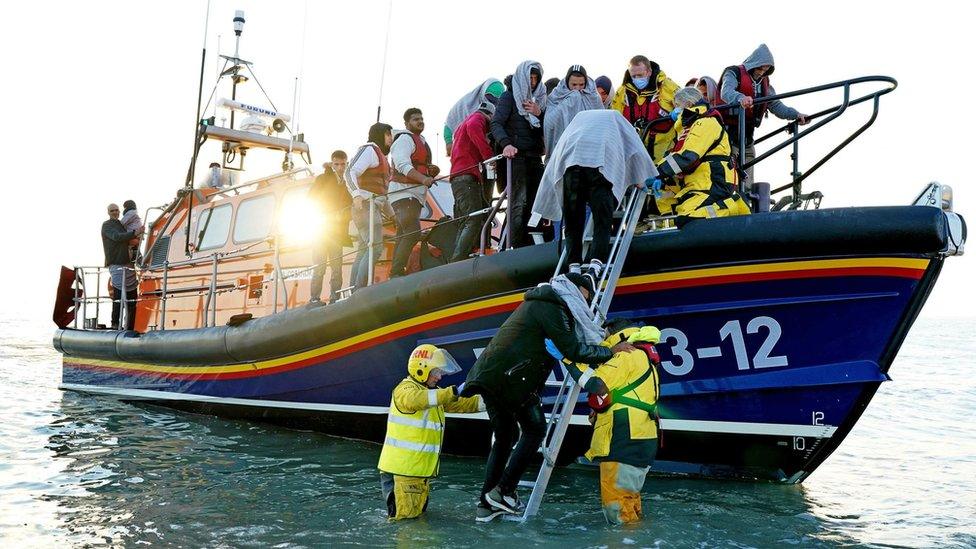UK immigration: Little evidence Albanians at risk and need asylum
- Published
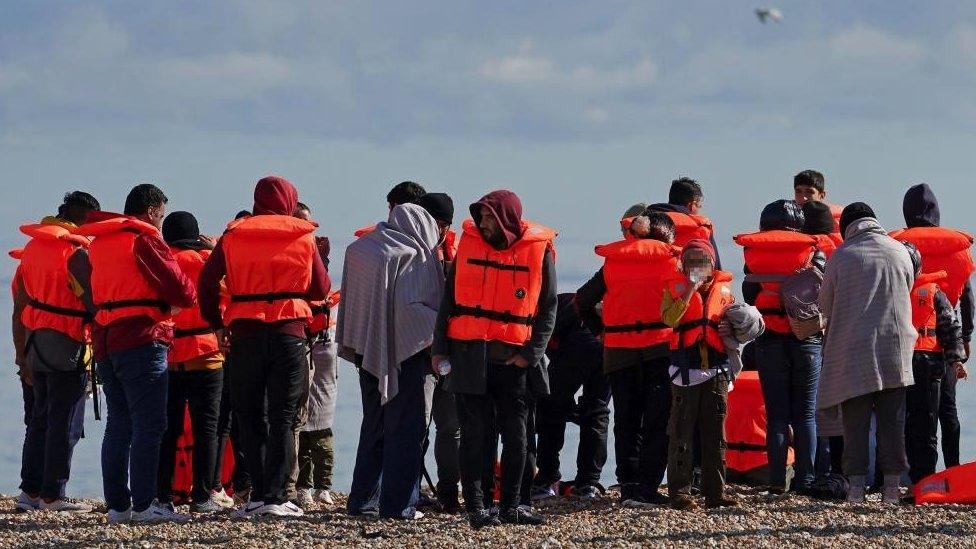
There is "little evidence" Albanians are at risk in their country and need asylum in the UK, a committee of MPs says.
Albanian nationals should not routinely be granted asylum, the Home Affairs select committee said.
A total of 51% of asylum claims by Albanians were initially accepted over six months to June last year.
Some making asylum claims, particularly women, had been trafficked and need protection, MPs said.
The government said it was working with Albania to stop illegal migration.
It follows a rise in Albanian arrivals to the UK last year via small boats crossings.
In a report, external published on Monday, the cross-party committee stressed Albanian migrants to the UK were unlikely to require asylum.
It cited figures showing that 51% of Albanian cases were initially accepted in the first half of 2022 - the majority of these claimants arrived on ferries or planes rather than small boats.
The committee said nine countries, including Germany, had accepted no asylum claims from Albania during that period.
It called on the Home Office to explain why the UK's acceptance rate was so high - particularly compared to other countries.
The report also highlighted figures showing that in 2022, more than a quarter of the 45,755 people who crossed the Channel in small boats came from Albania - "and most claimed asylum".
It added the number of Albanians arriving in the UK by this route had gone from 800 in 2021, to 12,301 in 2022.
"Albania is a safe country," the MPs said. "It is not at war and is a candidate country to join the European Union.
"There is no clear basis for the UK to routinely accept thousands of asylum applications from Albanian citizens, the committee finds."
It suggested that driving factors for people coming to the UK from Albania largely included better job opportunities and higher wages.
But the MPs also flagged there were "unquestionably cases of Albanian citizens being trafficked to the UK".
It said more needed to be done to support the Albanian victims of people smuggling - especially women.
Labour MP Dame Diana Johnson, the committee's chairwoman, said there had been a "substantial sudden increase in asylum claims from a seemingly peaceful country".
She said: "While it is important that questions are asked and lessons are learnt, it is clear that the immigration picture is not static and will continue to evolve."
The MPs recommended the government promote seasonal work visas in agriculture and construction to give more Albanians the opportunity to come to the UK without making unauthorised Channel crossings.
It also said appropriate safeguards must be put in place before any victims of trafficking were returned to Albania, and recommended the UK maintain strong links with the country's government.
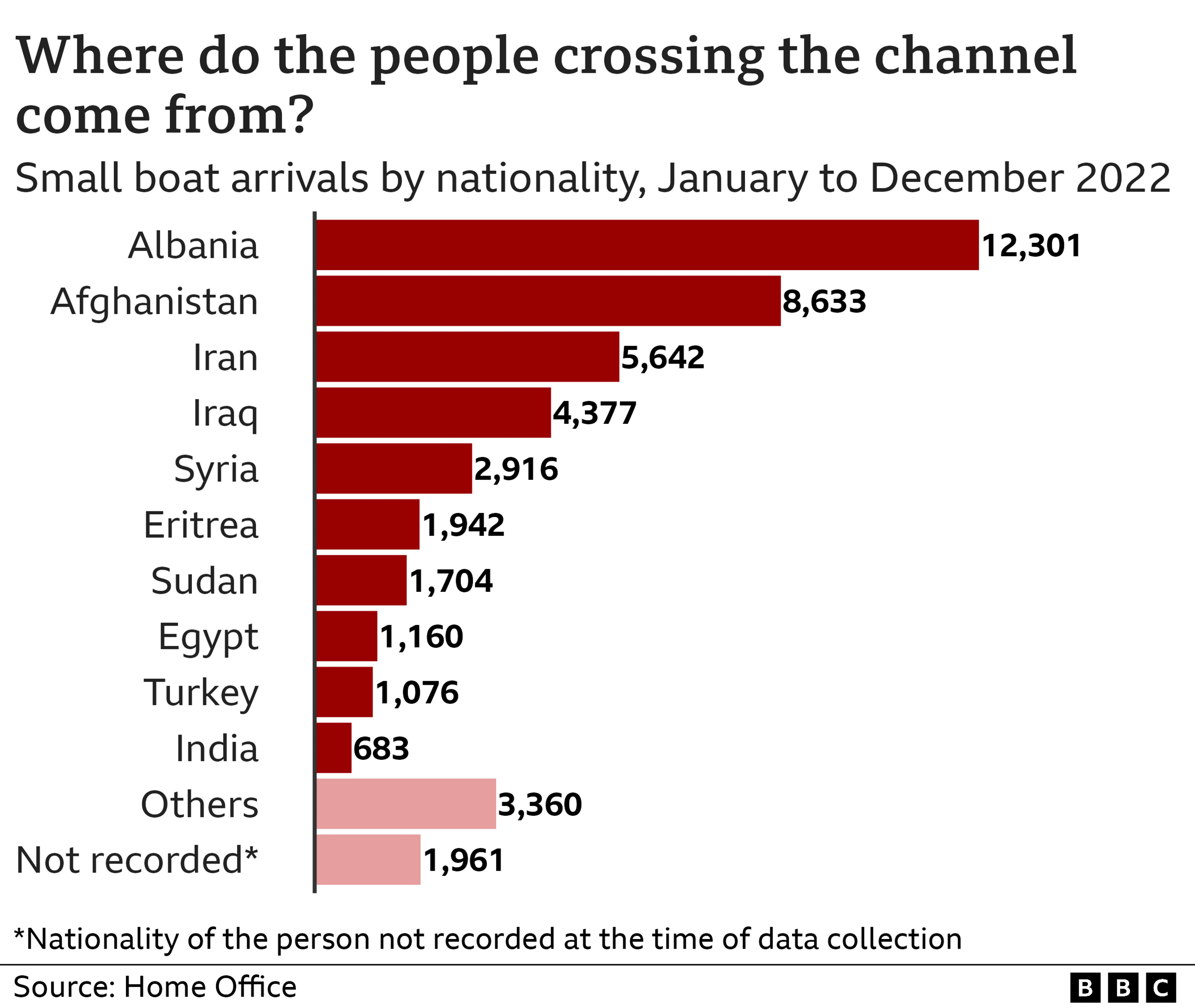
Dame Diana said: "Changes in migration will inevitably place strain on any system, but the government must do much more to ensure it can better handle these stresses."
She also said it was important the "UK improves its overall approach to asylum".
Last week in Kent, Prime Minister Rishi Sunak said his plan to tackle migration is progressing, but there is "work to do".
He said a deal with Albania to return migrants had led to 1,800 people being sent back, and that was having a deterrent effect.
A Home Office spokesperson said "this government's priority is stopping the boats".
It went on: "Last year, 28% of those who arrived by small boat to the UK were from Albania - a safe European country and Nato ally - placing further strain on our asylum system.
"We've worked closely with the Albanian government to disrupt criminal gangs and deter illegal migration. In the five months to the end of May, Albanian small boat arrivals are down 90% on last year and we have returned 1,800 illegal migrants and foreign criminals back to Albania. Thanks to changes to our asylum system, we have gone from accepting 1 in 5 Albanian asylum claims to just 1 in 50, in line with other European countries.
"We will carefully consider the report and respond in due course."
Related topics
- Published28 June 2023
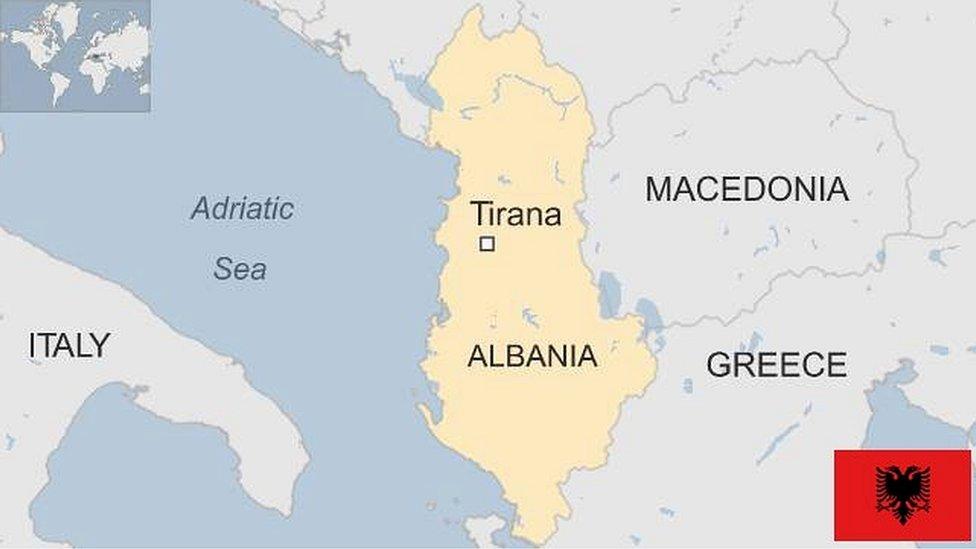
- Published8 March 2023
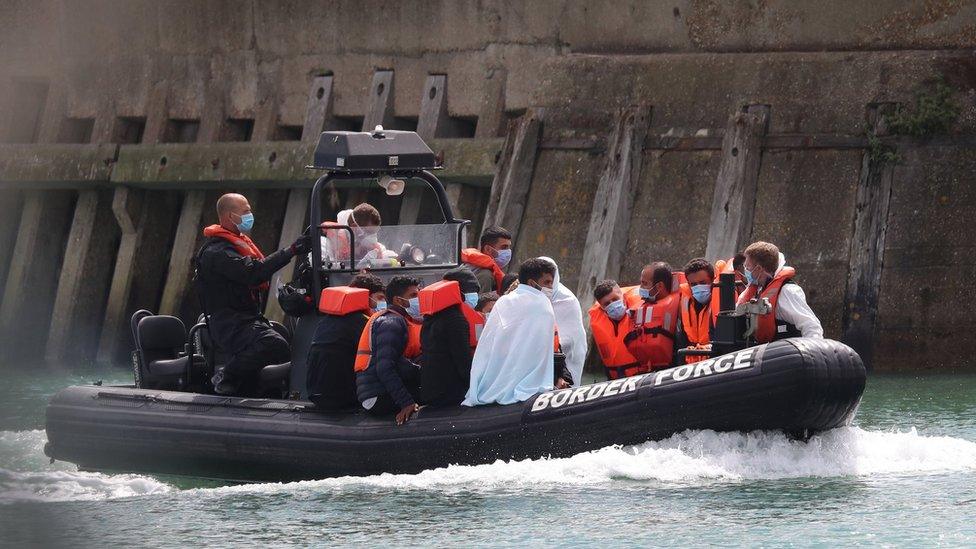
- Published17 May 2023
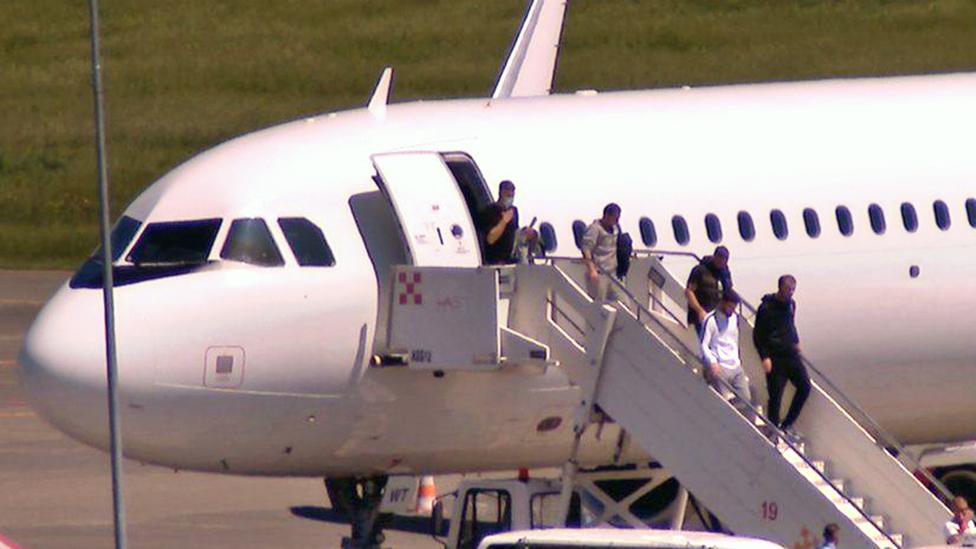
- Published28 May 2023
